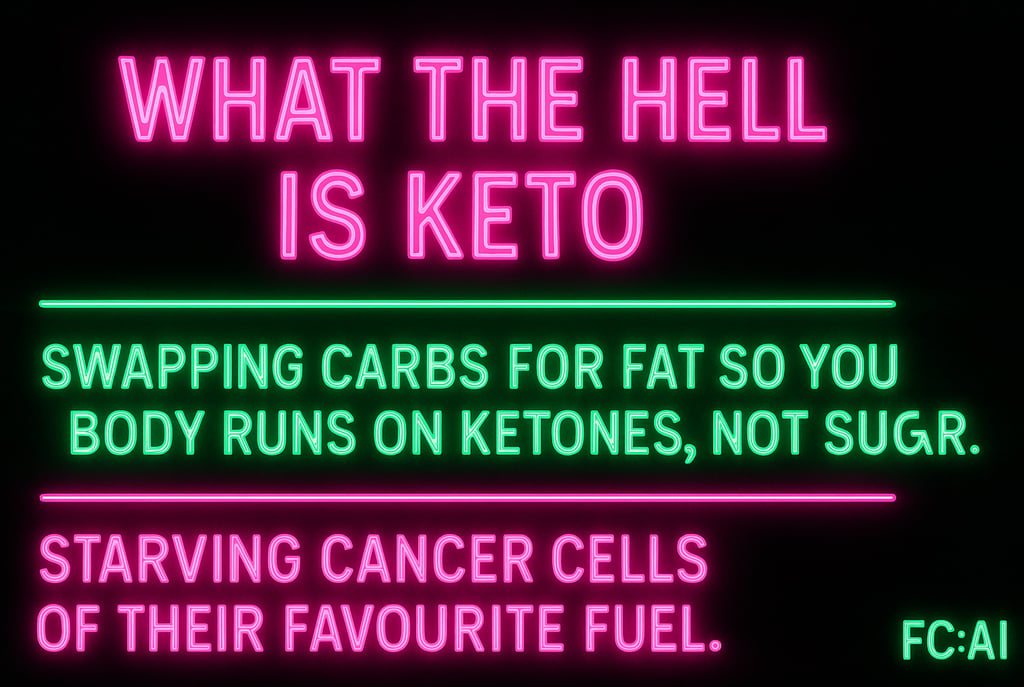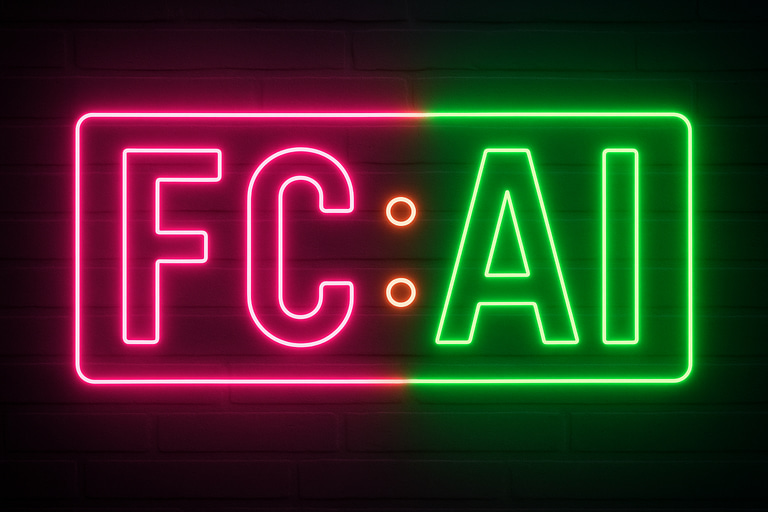Fcancerwith: Ketosis and giving myself a fat chance
One week post-chemo, building strength with strict keto, daily tracking, and fewer excuses. Real numbers, honest results, and zero wellness bullshit.
MY STORY
Russ Read-Barrow
7/22/20253 min read


Last Friday, while drinking a beer at the cricket club, a few mates were asking me about keto and how and why I’m doing it. So that inspired today’s blog…
It’s a week since my last chemo cycle and, to be honest, I’m feeling really good. The plan now? Build myself back up, get stronger, and make the most of the days when energy is on my side. This is where tracking comes in - and where things get interesting with the ketogenic diet.
What Am I Tracking and Why?
I track everything. Partly because I’m obsessed with data, but also because its the only way for me to stay on track. The WHOOP band tells me when I’m recovering, when I’m knackered, and - most painfully - what happens after a night with a few (4+) pints. Alcohol WRECKS my sleep. Nicotine isn’t much better. The data’s all over the place after a drink: recovery drops, HRV tanks. I feel bad, and then I feel even worse when the data tells me how bad I feel (perhaps the downside.) There’s another reason for keeping the booze in check: ketosis. Alcohol can kick you out of it, so if I’m serious about running this protocol, I have to adapt.
What Even Is Keto?
In short: ketogenic diets flip your body’s fuel source from carbs (glucose) to fat (ketones). Cancer cells - especially colorectal- love glucose, but they’re rubbish at running on fat. If you starve them of their favourite food, you make life harder for the cancer and, hopefully, easier for the rest of you.
Keto isn’t some Instagram “wellness” wank. It’s a metabolic swerve with real science behind it, and it’s tough to get right - especially when you’re also trying to eat enough to stay strong.
Why Am I Doing Keto?
To be clear, I'm not expecting this to cure my cancer. Its about stacking the odds in my favour. There’s a growing pile of evidence showing that a strict keto protocol can slow cancer growth and support recovery during treatment. It’s not a silver bullet, but it’s a lever I can pull. And right now, I’m interested in every advantage, however marginal.
I’m measuring my ketones daily (with a Keto-Mojo blood test.) My aim is to get into “therapeutic ketosis” (that’s blood ketones above 2 mmol/L) and keep my blood sugar low (<90 mg/dl).
The Plan: What I’m Actually Doing
Here’s what I’m aiming for:
Carbs: 20 grams a day, max. No, that’s not a typo. It’s brutal, especially when you realise how easy it is to blow that just by looking at a potato. I've tried hard today, and already gone over by 130pm.
Protein: 70 grams a day. Not low, but not high either. Enough to support muscle, not enough to mess with ketosis.
Fat: 260 grams (give or take). That’s the hardest bit - eating enough fat to stay energised without stuffing myself. I'm still figuring this out.
Veg: At least eight different kinds, mostly leafy greens and Mediterranean veg.
Fruit: Two servings a day, berries only.
Supplements: Loads. That's another post.
The Hardest Bit: Hitting Those Numbers
Keeping carbs under 20g and protein at 70g, while shovelling down 260g of fat, is a mission. You basically have to relearn how to eat. My meals are now lots of butter, double cream, proper meat, oily fish, big bowls of leafy greens, and endless olive oil. Fat bombs are officially on the menu. If it’s fatty and not processed, it’s fair game.
Getting the macros right takes real effort - and A LOT of trial and error. I've built another customGPT to help track the details, but it’s easy to overshoot the protein or sneak in extra carbs. Hitting fat targets means saying yes to more butter and cream than feels normal.
Tracking, Not Guessing
Everything gets tracked. I want to know what works, what doesn’t, and how I’m responding. Some of this will take weeks to show up. I’m looking for patterns: days when I sleep better, days when energy holds up, days when the numbers just don’t add up.
Why Bother?
Because every little thing I can control is worth doing. The big picture is chaos, but the day-to-day? That’s where you win or lose ground. If keto gives me a 1% edge, I’ll take it. If tracking my sleep keeps me honest about what really helps, I’ll take that too. Building strength, building resilience, stacking up small wins. That’s what this phase is about.
Key Takeaways
Feeling good, one week post-chemo. Energy’s up, focus is building.
Alcohol and nicotine absolutely trash sleep and recovery.
Kicking off a strict keto protocol: 20g carbs, 70g protein, 260g fat. But its going to take a concerted effort to get it right.
Tracking everything: food, sleep, recovery, mood. No guesswork.
Aiming for therapeutic ketosis and any edge I can get against cancer.
If You Want More
I’ll share the numbers, the tools, and the mistakes as I go. If you’ve tried keto during cancer treatment (or just want to talk about tracking recovery), get in touch here or via LinkedIn.
FC:AI
© 2025 FC:AI. Built with zero bullshit during chemo.
All content © FC:AI unless otherwise credited.
